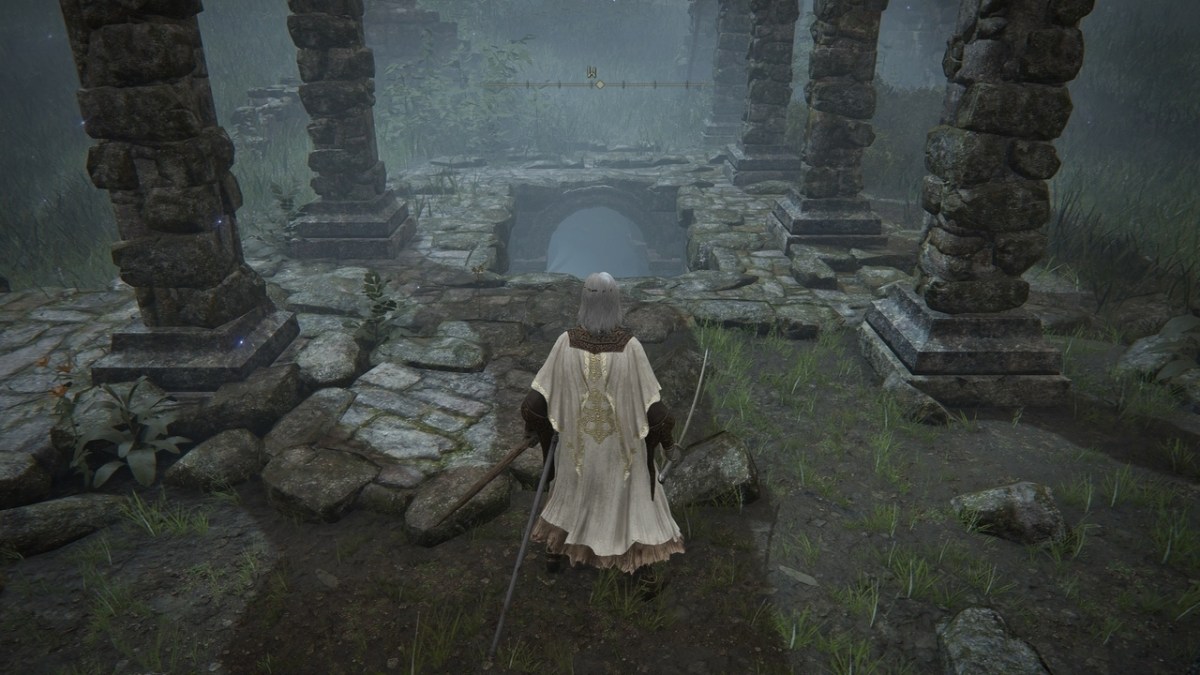The Rogue is one of the most versatile classes in Dungeons & Dragons, and they are just as reliable in Baldur’s Gate 3. However, it might take some effort to optimize their skills and abilities in Baldur’s Gate 3.
The road to Level 12 is long. Unless they’ve played D&D before, players may find it challenging to effectively build their Rogue. This is especially true as they progress through the game’s forty-hour-long story. This guide will help new Baldur’s Gate 3 players understand the abilities Rogues learn from levels 1 to 12, so keep reading if you want to learn how to run a Rogue like a pro.
All Rogue Level-Up Rewards in Baldur’s Gate 3

Rogues can be many things, but the one thing they should always be is quick and sneaky. As they level up, Rogues gain abilities that allow them to avoid detection and gain unrivaled mastery in a small group of Skills, enabling them to blend into the shadows and find subversive solutions to almost any issue in combat and social encounters. Here’s what progression looks like for a Rogue in Baldur’s Gate 3.
| Level | Features |
|---|---|
| 1 | Snake Attack: Melee (Action) Sneak Attack: Ranged: (Action) Expertise in two Skills |
| 2 | Cunning Action: Hide (Action) Cunning Action: Dash (Action) Cunning Action: Disengage (Action) |
| 3 | Rogue Subclass Sneak Attack Increase |
| 4 | Feat or Ability Score Improvement |
| 5 | Uncanny Dodge (Class Feature) Sneak Attack Increase |
| 6 | Expertise in two Skills |
| 7 | Evasion (Class Feature) Sneak Attack Increase |
| 8 | Feat or Ability Score Improvement |
| 9 | Sneak Attack Increase |
| 10 | Feat or Ability Score Improvement |
| 11 | Reliable Talent (Class Feature), Sneak Attack Increase |
| 12 | Feat or Ability Score Improvement |
Level 1
At level 1, Rogues gain their defining Class Feature; Sneak Attack. This Ability allows Rogues to deal an additional 2d6 of damage to enemies they have Advantage against. Advantage is a mechanic that allows you to roll 2d20 instead of one and pick the highest result. Rogues can also use their sneak attacks when they don’t have Disadvantage and have an ally adjacent to the target.
You can get Advantage by attacking prone enemies near you. At any distance, you have Advantage when attacking blinded, entangled, or paralyzed enemies. You also have Advantage if you are attacking while hidden or invisible. Note that some abilities and spells can also grant Advantage to your character.
Related: Baldur’s Gate 3 Fighter 1-12 Progression: All Skills, Abilities, and Level Up Rewards
Level 1 Rogues also gain Expertise in two Skills they are proficient in. Expertise doubles the Proficiency Bonus a Rogue adds to an ability check, significantly increasing their odds of success. The Rogue is second only to the Bard in the number of Skills they can gain Proficiency in, so choose whichever ones fit the type of Rogue you want to be. I recommend Slight of Hand and Stealth be the first skills you put Expertise into.
Level 2
At Level 2, Rogues gain Cunning Actions, upgraded variants of the Hide, Dash, and Disengage actions that all classes can use. Unlike their box-standard counterparts, Cunning Actions can be used as Bonus Actions, allowing Rogues to hide, double their movement speed, and leave combat without using their Action, giving them more freedom to set up a devastating Sneak Attack or escape a dangerous situation.
Level 3
Level 3 is where a Rogue can choose their Subclass, known to them as a Roguish Archetype. Rogues can, fittingly enough, choose from one of three Subclasses when they reach Level 3.
- Arcane Trickster
- Assassin
- Thief
On top of getting a Rogueish Archetype, Rogues also get a bonus to their damage output. At level 3, the Sneak Attack damage increases from 1d6 to 2d6.
Level 4
At Level 4, a Rogue gets to pick a Fear from a long list of options. This is the first of many Feats argue gets leveling up, and the best first choice is easily Crossbow Expert. Crossbows are one of the best weapons a Rogue can use, and Crossbow Expert removes many of the weapon’s most significant drawbacks while playing into its strengths.
Note that you can also go for an Ability Score Increase instead of a Feat. These can be tremendously helpful since they might increase your Dexterity for greater hit bonuses and higher AC. Having a higher Constitution modifier also helps since each +1 from Constitution increases your total Hit Points by 1 per level of your character. In the end, it always depends on the build you are going for.
Level 5
At Level 5, Rogues gain Uncanny Dodge, which allows Rogues to reduce the damage of an oncoming attack by half as a Reaction. This will enable Rogues to withstand being hit by hard-hitting attacks that would carve massive chunks out of their health bar under normal circumstances. The damage the Rogue’s Sneak Attack deals also increases from 2d6 to 3d6.
Level 6
Once they’ve reached Level 6, a Rogue can put Expertise into two more skills. Investigation and Acrobatics are excellent choices since Rogues spend a lot of time searching for traps and nimbly traversing hard-to-navigate locations.
Level 7
At level 7, Rogues gain Evasion, allowing them to completely negate damage dealt by spells and other area-of-effect attacks that require a Dexterity-based saving throw. Rogues usually sneak along the edge of the battlefield in most combat encounters, and Evasion allows them to avoid any splash damage that might come their way. The damage of Sneak Attack also increases from 3d6 to 4d6.
Level 8
Rogues can choose another Feat at Level 8, and Mobile is an excellent addition to any Rogue’s arsenal. This Feat increases the Rogue’s Movement Speed and allows them to move through Difficult Terrain without a movement penalty. It also grants the Rogue immunity to Opportunity Attacks, which usually limits their Ability to move near enemies.
Level 9
At Level 9, the Rogue’s Sneak Attack damage bonus increases from 4d6 to 5d6. This increase is all a Rogue gets at Level 9, but extra damage never hurt anyone. Except for your enemies, of course.
Related: Baldur’s Gate 3 Monk 1-12 Progression: All Skills, Abilities, and Level Up Rewards
Level 10
Level 10 is yet another Feat level-up for the Rogue, and I’d recommend picking up Dungeon Delver. Dungeon Delver gives a Rogue Advantage on Perception checks used to detect traps and gives them Resistance to damage dealt by traps they fail to find or disarm.
Level 11
The second-to-last level-up a Rogue gets gives them two incredible abilities. The first, Reliable Talent, means that they can never roll lower than a 10 in any Ability Check they make with a Skill they are proficient in. When combined with Expertise, Reliable Talent all but failure-proofs the Rogue since most critical Ability Checks they make will use skills they are probably Proficient in.
The second thing Rogues get at Level 11 is one last improvement to their Sneak Damage, which is now 6d6. Your Rogue’s Sneak Attack is now as powerful as it’s ever going to be in BG3, so choose your targets wisely and watch as their bodies hit the floor.
Level 12
Upon reaching Level 12, your Rogue gets to choose one last Feat, and in my humble opinion, there’s only one right choice. The Skilled Feat gives you Proficiency in three skills of your choice. Pick whichever trio of skills you feel would benefit the most from Proficiency and gain even more utility than you had before.
All Rogue Subclasse, Features, and Level-Up Rewards in Baldur’s Gate 3

Each Rogueish Archetype gives you additional abilities alongside the main ones you get as you level up. The three Rogueish Subclasses are radically different from one another, and the one you choose will define the kind of Rogue you become as you gain more levels. If you end up regretting your choice of Roguish Archetype, you can respec by finding and using a Wither.
Arcane Trickster
Arcane Tricksters possess a basic knowledge of magic that other Rogues lack. The Ability to cast magic dramatically enhances the scope of a Rogue’s capabilities, and the list of spells they can learn is full of great choices, like Mage Hand and Disguise Self. Here’s what the path of progression looks like for an Arcane Trickster.
| Level | Ability | Description |
|---|---|---|
| 3 | Arcane Trickster Spellcasting | You gain the ability to cast spells and cantrips. |
| 3 | Mage Hand Legerdemain | When you cast a special version of Mage Hand. The spectral hand is invisible and can carry out additional tasks. |
| 9 | Magical Ambush | While you are Hidden, your targets have Disadvantage on Saving Throws against your spells. |
Related: Baldur’s Gate 3 Wizard 1-12 Progression: All Spells, Abilities, and Level Up Rewards
| Arcane Trickster’s Rogue Levels | Cantrips Known | Spells Known | Level 1 Spell Slots | Level 2 Spell Slots |
|---|---|---|---|---|
| 3 | 3 | 2 | 2 | – |
| 4 | 3 | 3 | 3 | – |
| 5 | 3 | 4 | 3 | – |
| 6 | 3 | 4 | 3 | – |
| 7 | 3 | 5 | 4 | 2 |
| 8 | 3 | 6 | 4 | 2 |
| 9 | 3 | 6 | 4 | 2 |
| 10 | 4 | 7 | 5 | 2 |
| 11 | 4 | 8 | 6 | 2 |
| 12 | 4 | 8 | 6 | 2 |
Assassin
An Assassin is an agent of quick-and-not-so-painless death that can cut enemies down to size in a way few other Classes can. Right off the bat, Assassins gain more opportunities to perform a Sneak Attack that automatically crits, allowing them to whittle down bulkier enemies’ health bars with quick and decisive blows. Here’s what Assassins get when they level up.
| Level | Ability | Description |
|---|---|---|
| 3 | Assassinate: Initiative | You have Advantage against enemies who haven’t acted yet. |
| 3 | Assassinate: Ambush | Any successful Attack Roll against a Surprised creature is a Critical Hit. |
| 3 | Assassin’s Alacrity | Your preemptive strike doesn’t take away your turn in the first round of the combat. |
| 9 | Infiltration Expertise | You can change your appearance and take on a new identity until you take a long rest. |
Thief
Thieves sacrifice the magical process of the Arcane Trickster and the deadly efficiency of the Assassin for increased utility. Thieves can sneak, climb, and pick locks better than any other Rogue, allowing them to walk crowded streets unseen and perform daring robberies in broad daylight. Here is what a Thief gets when they level up.
| Level | Ability | Description |
|---|---|---|
| 3 | Fast Hands | Gain an additional Bonus Action. |
| 3 | Second-Story Work | You’ve mastered the art of falling and gain resistance to Falling damage. |
| 9 | Supreme Sneak | You can use an action to blend into the environment so completely that you become Invisible for 10 turns. You can use this ability again after a short rest. |











Published: Aug 21, 2023 01:02 pm